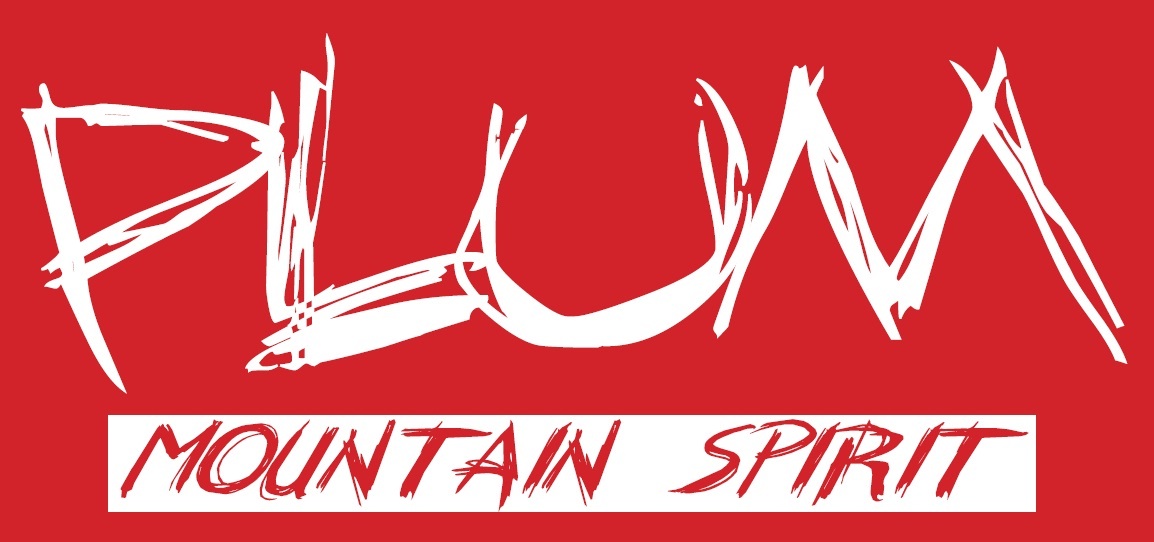Vitamin Zzzzz
 Sunday, March 21, 2010 at 12:00AM
Sunday, March 21, 2010 at 12:00AM God, what I wouldn't give to sleep like I did when I was a younger man. I remember hearing older people talk about the misery of poor sleep back then and I just did not get it. I mean, what were they talking about? You get tired, go to bed, fall asleep, sleep like the dead all night and get up in the morning. What's the big mystery here?
Well, sometime around, oh, I don't know, 6-7 years ago, things starting changing for me. Sure, I was hitting middle age when all the other crap you hear about happens but sleep problems? Come on! But there they were. Nothing horrendous. I mean, I wasn't an insomniac or anything. I just noticed myself waking up a lot during the night to turn over or whatever. It would often be at the exact same time of the night, too, which was kinda weird. I would wake up, turn over and glance at the clock and it would be 3:30am or something like that without fail. Strange. The beauty was that I would fall right back asleep and feel rested in the morning. I don't think it has ever caused me any problems performance-wise but when I hear how people actually sleep through the night I start to wonder.
Now, my wife has a different problem. She can't fall asleep. She partakes in all kinds of games to get to sleep but it can take hours sometimes. She resents the fact that I typically fall asleep within about 10 minutes of putting my head to the pillow. She will read half a book in her efforts to coax herself into unconsciousness and I will get through 3 pages and that's it...lights out! Once she is asleep she does pretty well but if she wakes up sometime later in the middle of the night she has to do the same drill all over. Now, that cannot be good for you.
So, I got a little more interested in the subject as my issues prevailed and have done a bit of research on the topic. I thought I would share it with you guys as I'm sure there are others who struggle with similar issues. I will also offer some of the latest recommendations to cope with sleep problems that might see you getting back to more and better rest more often.
Why Worry?
Sleep more, sleep better, blah, blah, blah. What's the big deal? I mean, I know guys who brag about how well they do with less sleep. You know the types, "...I only need 5 hours, man!" "Too much sleep is bad for you." You've got to be kidding. Of course these are the same knuckleheads who need to power down a couple of Mountain Dews or Red Bulls to get through the afternoon at work without bruising their foreheads on their desktops. Look, sleep is probably the most under-appreciated aspect of recovery in younger athletes. I think middle agers get it and are more concerned/educated about it but younger athletes and youth in general tend to pay less attention to how much sleep they're getting. But let's be clear here - all the important stuff that makes us fitter and perform better happens when we are out cold in bed. Yeah, that's right. That extra set of gut-wrenching intervals won't get you there nearly as well as 9 hours of quality rest over several days, if not weeks.
As I will discuss below, there is so much cool hormonal stuff going on when we are asleep. Guys spend thousands of dollars a year on bullshit supplements that supposedly increase their production of human growth hormone and testosterone. Well, Skooter, first of all, they DON'T work so save your money. Second, getting more and better sleep (read: free supplements!) will increase your exposure to your own, natural production of the hormones you are interested in. This is the stuff you want and you get it by doing NOTHING! Doesn't get any better than that.
The Basics
I don't want to bore you too much with sleep science but I think a general understanding of the mechanics will help us see the importance of this crucial element of our training program. First, you go to bed. Normal folks will fall off into transitional sleep within 10 minutes. Brain on overdrive? This may take awhile but I will discuss coping strategies for that later. Next, comes Stage 1 and then Stage 2 sleep. These are normal steps to the Holy Grail, REM (rapid eye movement) sleep, seen in stages 3 and 4, also known as Slow Wave Sleep. We spend a lot of the night dancing in and out of these latter stages with each foray into the money getting longer and longer. Average adults see 4-6 passes into REM and duration varies from 10 minutes to 30 minutes. An important thing to note here is that the REM intervals get longer as the night progresses which means that you want longer sleep so you get to visit these realms and enjoy all the fruits they offer. Cut yourself short, get up early and miss the longest and best REM stages and you will pay.
Every time we hit Slow Wave Sleep we get another shot of hGH. That is the elixir of performance, baby! We also attain a state called "Atonia" where our muscles are effectively paralyzed. This is an important time of muscle repair and regeneration in concert with the effects of hGH. Anabolic hormones like testosterone are doing their thing during this time, as well.
Sleep Hygiene
There are pathological states of sleep inhibition that go beyond the scope of this article. Individuals with undiagnosed thyroid conditions, people with multiple sclerosis and other conditions all create sleep issues that need attention from experts. What I'm talking about here are regular folks who simply need to clean up their act to get the sleep the need and want. I'm talking about stuff we do, eat, think about and the place we actually try to sleep. So, let's pick these apart.
As far as avoiding certain activities before bed, it's pretty simple. Avoid stuff that gets you fired up. Don't exercise an hour before you plan to hit the rack. Don't argue with your spouse. Some might say that sex gets them fired up but there is a hormonal compensation that seems to counteract the effect.
Watch what you eat
What we put down our pie holes can have a deleterious impact on our slumber. Obvious stuff like avoiding caffeine after 3pm is a good start. Make sure you know where this stimulant lurks. Coffee and tea are no-brainers but look out for soda, chocolate and hot cocoa. The quantity of caffeine is less in these foods but may still be significant for more sensitive individuals. There is another group of foods the triggers the release of the catecholamine, norepinephrine. These include potatoes, tomatoes, eggplant, chicken liver, beer, spinach, ham, cheese, sausage and bacon. Probably better to avoid some of these at dinner. What the hell are you eating chicken liver for anyway??
Alcohol is another poison best avoided for your best sleep. Sure, most of us like to drink once in awhile, even get a good buzz from time to time. But realize that imbibing will screw with your sleep. Alcohol is a central nervous system depressant and can mess with your sleep breathing. It also inhibits hGH and testosterone secretion so you have yet another reason to avoid it. Chronic alcohol users report far more sleep disturbance issues than non-drinkers.
General fluid consumption should be curbed later into the evening. Getting up to pee in the middle of the night is a significant disruption and can be managed by avoiding drinking anything in the 2-3 hours before bed. That Sleeping Time tea you like so much may not be doing you any favors in the long run. Certainly, don't go to bed parched but try to get your rehydration done earlier than later.
The Brain Dump
Turning off the brain as we try to fall asleep can be a serious challenge for some. These people tend to run through check lists of stuff they need to do in the future. One way to deal with this is something called the "brain dump". Simply find a time in the evening and make a list of all the stuff you need to do or don't want to forget and set it aside. This will have the affect of relieving you of the burden of remembering all that crap until the morning.
Don't look into the light!
Two of the biggest culprits in the ruination of our rest are the computer and the television. Our brains are very sensitive to light. So much of our daily wakefulness is tied around the sun and other light sources. Exposure to light changes everything. Think of the light from these two devices as boring deep into your brain (through the optic nerve in your eyes) and turning off your desire to fall asleep. Really, this is kind of what that type of light does. So, get the damn television out of the bedroom, Romeo, and stop surfing porn before bed!
Other sources of light in and around our bedroom are equally villainous. Get rid of all ambient light emitters like charging cell phones, internet modems, electric clocks and others. Light coming in from the outside is equally hazardous and can be managed with full-blown black out curtains. You can't sleep in if the sun wakes you up and triggers that part of your brain I mentioned earlier. Eye shields are a nice, inexpensive way to deal with all of the above without rearranging your set-up too much.
Get quiet
Noise can be a huge distraction and is best managed with either ear plugs or, my favorite, some kind of white noise generating device. I got an air purifier a few years ago and became addicted to the noise-canceling effect. It's now hard for me to sleep in complete silence. I keep one of those little plug-in desk top office fans in my car when I travel and can bring it into whatever space I'm sleeping for the desired effect. It's a little high maintenance, I'll admit, but good sleep is no joke!
In an ideal world getting set for bed would start around dinner, whenever that may be for you. Earlier is better but not always possible when trying to train after work. That said, watch what you eat and avoid stimulants. Turn off the television and computer at least an hour before bed. Turn off all unnecessary lights in the house and generally try to dim your whole scene. Reading before bed or in bed seems to utilize a part of the brain that will not impair sleep induction. Remember, reading a book by a bedside lamp is way different than reading whatever is on your lap top.
Need help?
There is a multi-billion dollar industry around pharmacological interventions for sleep issues. Yeah, forget all the shit I said before, just take a pill! It's the American way! Right. In my opinion, there is no free lunch here. All of these medications like Ambien, Lunesta, various benzodiazapenes like Valium and Chlorazapam are addicting and generally become a dead end at some point. There are supplements like various forms of tryptophan and melatonin that work for some folks. I would avoid all of them until after you have failed a good multi-week trial of the above measures.
After all of these fail, you can always go to a sleep lab and have the experts dissect what the heck is going on with you at night. Of course, they are going to tell you to do all the stuff listed above. However, they may find something like a previously unrecognized condition such as obstructive sleep apnea. Hell, that shit can kill you, literally, and is certainly worth finding out about. Beyond that, most people will do well with a few of the adjustments I recommend here. I have also found that recording the number of hours and the quality of each night's slumber is a great motivator to get more. Nothing like being accountable. Night, night...Brian
 Brian |
Brian |  2 Comments |
2 Comments |  General
General 





Reader Comments (2)
I've only read half a book when trying to get to sleep once ... or twice.
And I have a hard time getting through more than a few pages. I just crater too quickly. My wife, on the other hand, can read until 4am easily.
But aside from the personal stuff, this is good information. Insightful.